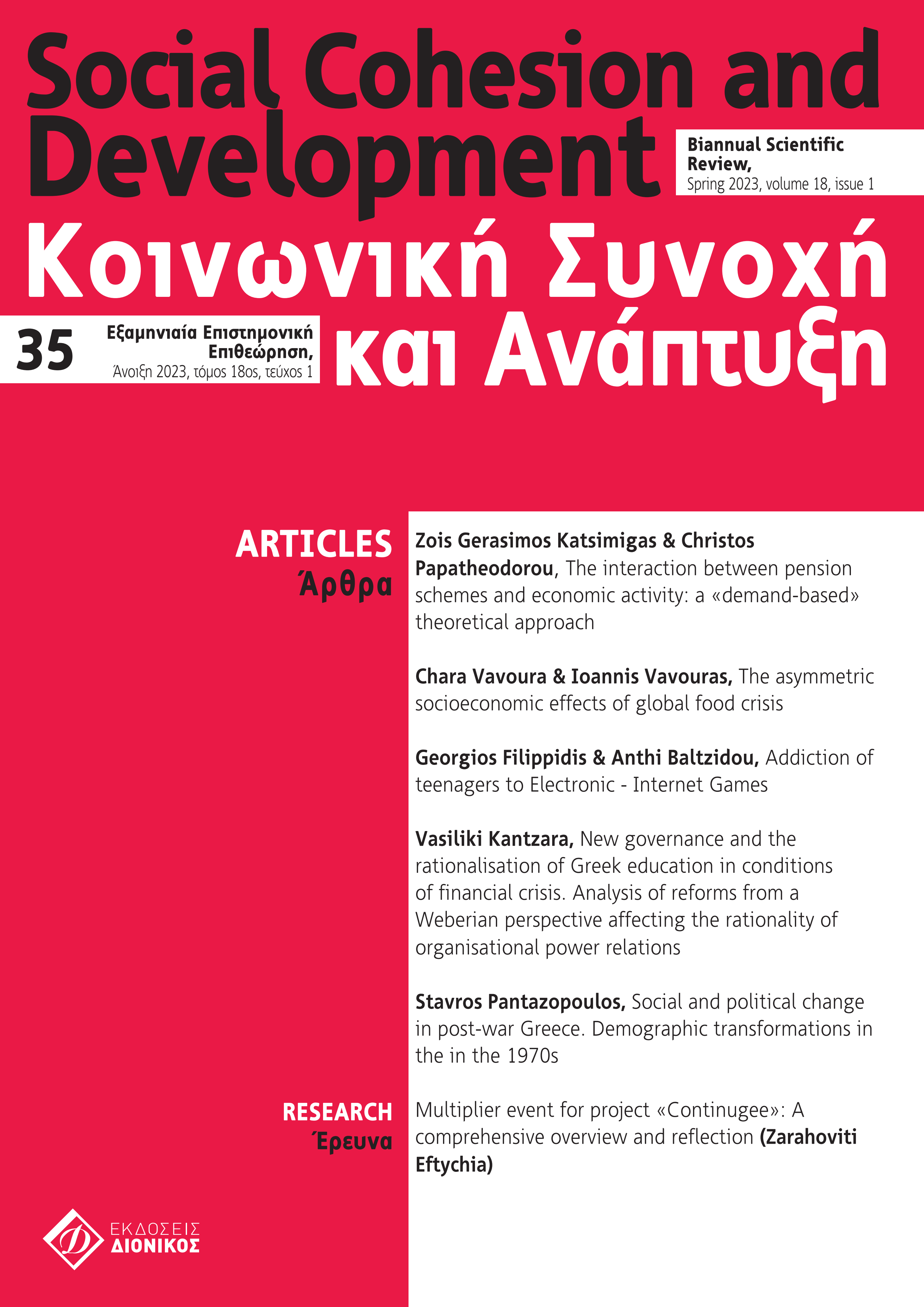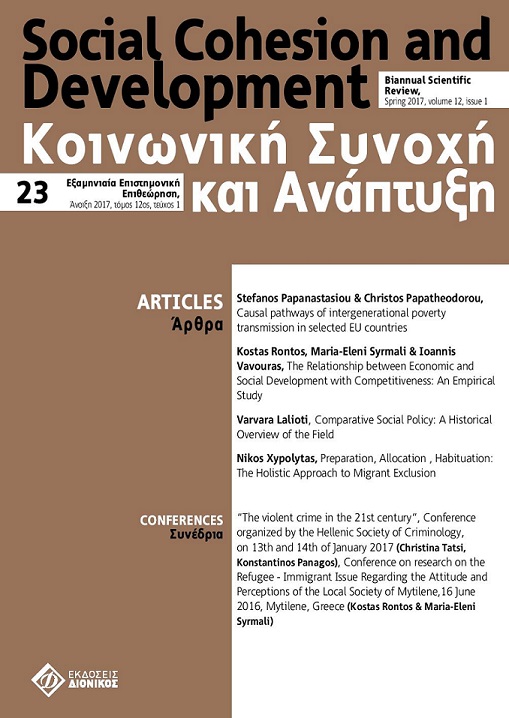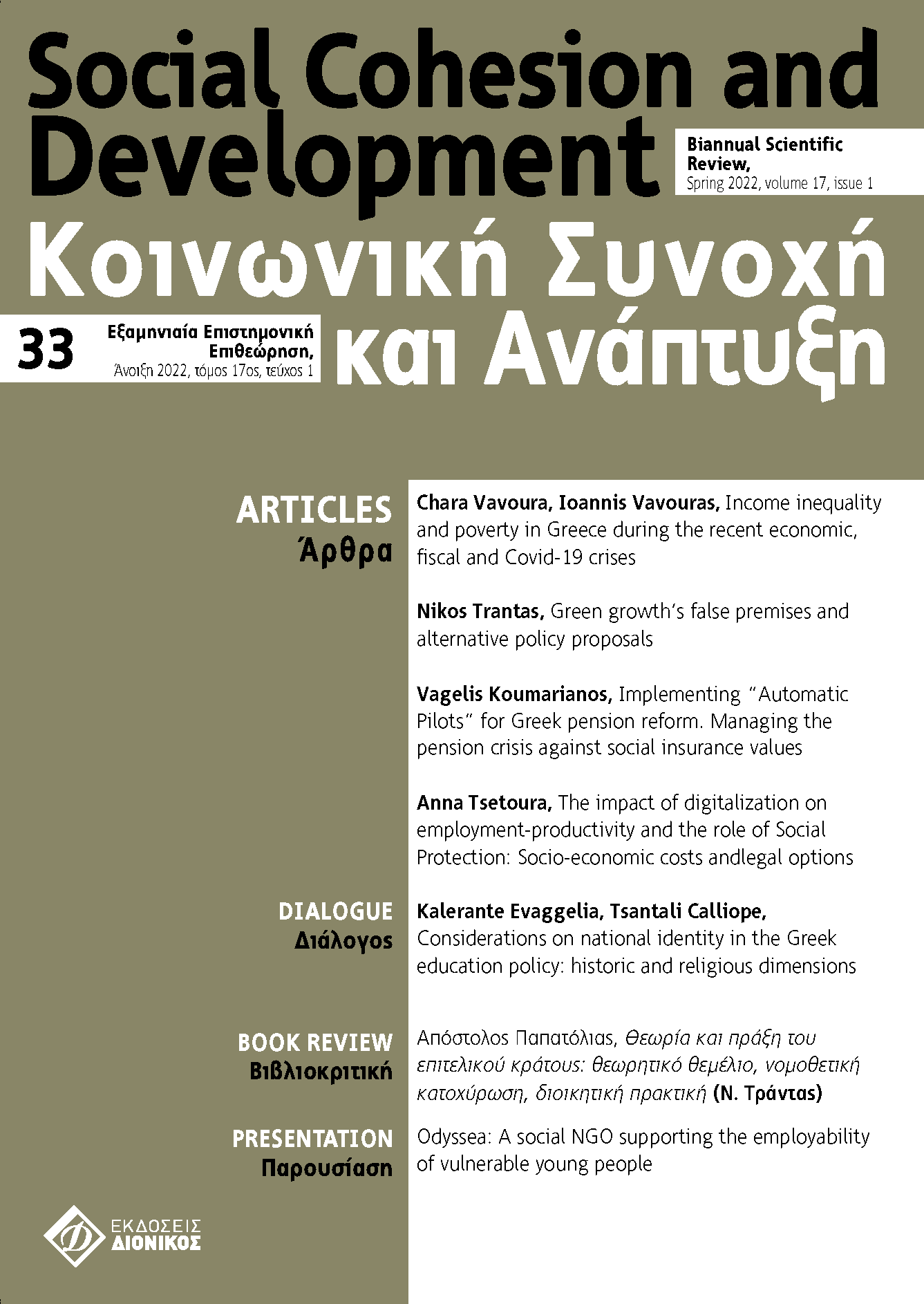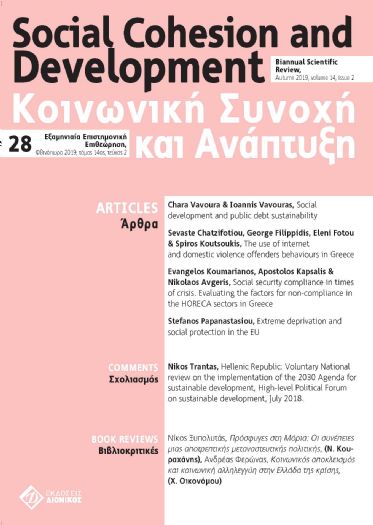Οι ασύμμετρες κοινωνικο-οικονομικές επιπτώσεις της παγκόσμιας επισιτιστικής κρίσης

Abstract
The planet is experiencing a food crisis, the
extent of which is unprecedented in the 21st
century. The Covid-19 pandemic and the
Russian invasion of Ukraine, combined with
the extreme weather conditions of recent years,
have been the most important determinants
of this crisis. However, the food crisis has not
affected all households and states equally but
has been more severe for the economically
vulnerable households and lower-income
countries, where food takes up a large share of
their consumption expenditure. The objective
of this paper is to highlight the asymmetric and
consequently redistributive socio-economic
effects of the global food crisis
Article Details
- Zitationsvorschlag
-
Vavoura, C., & Vavouras , I. (2024). Οι ασύμμετρες κοινωνικο-οικονομικές επιπτώσεις της παγκόσμιας επισιτιστικής κρίσης. Social Cohesion and Development, 18(1), 21–30. https://doi.org/10.12681/scad.37320 (Original work published 30. Juni 2023)
- Ausgabe
- Bd. 18 Nr. 1 (2023): ¨Νο 35
- Rubrik
- Articles

Dieses Werk steht unter der Lizenz Creative Commons Namensnennung - Nicht-kommerziell - Weitergabe unter gleichen Bedingungen 4.0 International.
Authors who publish with this journal agree to the following terms:
- Authors retain copyright and grant the journal right of first publication with the work simultaneously licensed under a Creative Commons Attribution Non-Commercial License that allows others to share the work with an acknowledgement of the work's authorship and initial publication in this journal.
- Authors are able to enter into separate, additional contractual arrangements for the non-exclusive distribution of the journal's published version of the work (e.g. post it to an institutional repository or publish it in a book), with an acknowledgement of its initial publication in this journal.
- Authors are permitted and encouraged to post their work online (preferably in institutional repositories or on their website) prior to and during the submission process, as it can lead to productive exchanges, as well as earlier and greater citation of published work (See The Effect of Open Access).







